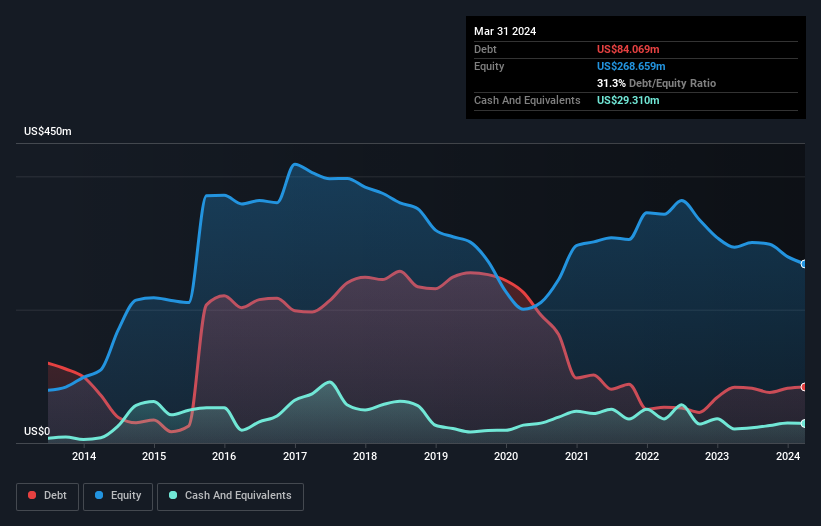Would Alto Ingredients (NASDAQ:ALTO) Be Better Off With Less Debt?
Alto Group Holdings, Inc. ALTO | 1.61 1.61 | -1.23% 0.00% Pre |
Howard Marks put it nicely when he said that, rather than worrying about share price volatility, 'The possibility of permanent loss is the risk I worry about... and every practical investor I know worries about.' When we think about how risky a company is, we always like to look at its use of debt, since debt overload can lead to ruin. We note that Alto Ingredients, Inc. (NASDAQ:ALTO) does have debt on its balance sheet. But the real question is whether this debt is making the company risky.
Why Does Debt Bring Risk?
Generally speaking, debt only becomes a real problem when a company can't easily pay it off, either by raising capital or with its own cash flow. In the worst case scenario, a company can go bankrupt if it cannot pay its creditors. However, a more common (but still painful) scenario is that it has to raise new equity capital at a low price, thus permanently diluting shareholders. Of course, the upside of debt is that it often represents cheap capital, especially when it replaces dilution in a company with the ability to reinvest at high rates of return. The first thing to do when considering how much debt a business uses is to look at its cash and debt together.
What Is Alto Ingredients's Net Debt?
As you can see below, Alto Ingredients had US$84.1m of debt, at March 2024, which is about the same as the year before. You can click the chart for greater detail. However, it also had US$29.3m in cash, and so its net debt is US$54.8m.

How Strong Is Alto Ingredients' Balance Sheet?
Zooming in on the latest balance sheet data, we can see that Alto Ingredients had liabilities of US$55.1m due within 12 months and liabilities of US$110.9m due beyond that. Offsetting these obligations, it had cash of US$29.3m as well as receivables valued at US$58.1m due within 12 months. So it has liabilities totalling US$78.6m more than its cash and near-term receivables, combined.
This deficit is considerable relative to its market capitalization of US$102.7m, so it does suggest shareholders should keep an eye on Alto Ingredients' use of debt. Should its lenders demand that it shore up the balance sheet, shareholders would likely face severe dilution. There's no doubt that we learn most about debt from the balance sheet. But it is future earnings, more than anything, that will determine Alto Ingredients's ability to maintain a healthy balance sheet going forward.
Over 12 months, Alto Ingredients made a loss at the EBIT level, and saw its revenue drop to US$1.1b, which is a fall of 14%. That's not what we would hope to see.
Caveat Emptor
While Alto Ingredients's falling revenue is about as heartwarming as a wet blanket, arguably its earnings before interest and tax (EBIT) loss is even less appealing. Indeed, it lost a very considerable US$16m at the EBIT level. When we look at that and recall the liabilities on its balance sheet, relative to cash, it seems unwise to us for the company to have any debt. Quite frankly we think the balance sheet is far from match-fit, although it could be improved with time. For example, we would not want to see a repeat of last year's loss of US$28m. In the meantime, we consider the stock very risky. There's no doubt that we learn most about debt from the balance sheet. However, not all investment risk resides within the balance sheet - far from it. Be aware that Alto Ingredients is showing 1 warning sign in our investment analysis , you should know about...
When all is said and done, sometimes its easier to focus on companies that don't even need debt. Readers can access a list of growth stocks with zero net debt 100% free, right now.
This article by Simply Wall St is general in nature. We provide commentary based on historical data and analyst forecasts only using an unbiased methodology and our articles are not intended to be financial advice. It does not constitute a recommendation to buy or sell any stock, and does not take account of your objectives, or your financial situation. We aim to bring you long-term focused analysis driven by fundamental data. Note that our analysis may not factor in the latest price-sensitive company announcements or qualitative material. Simply Wall St has no position in any stocks mentioned.




